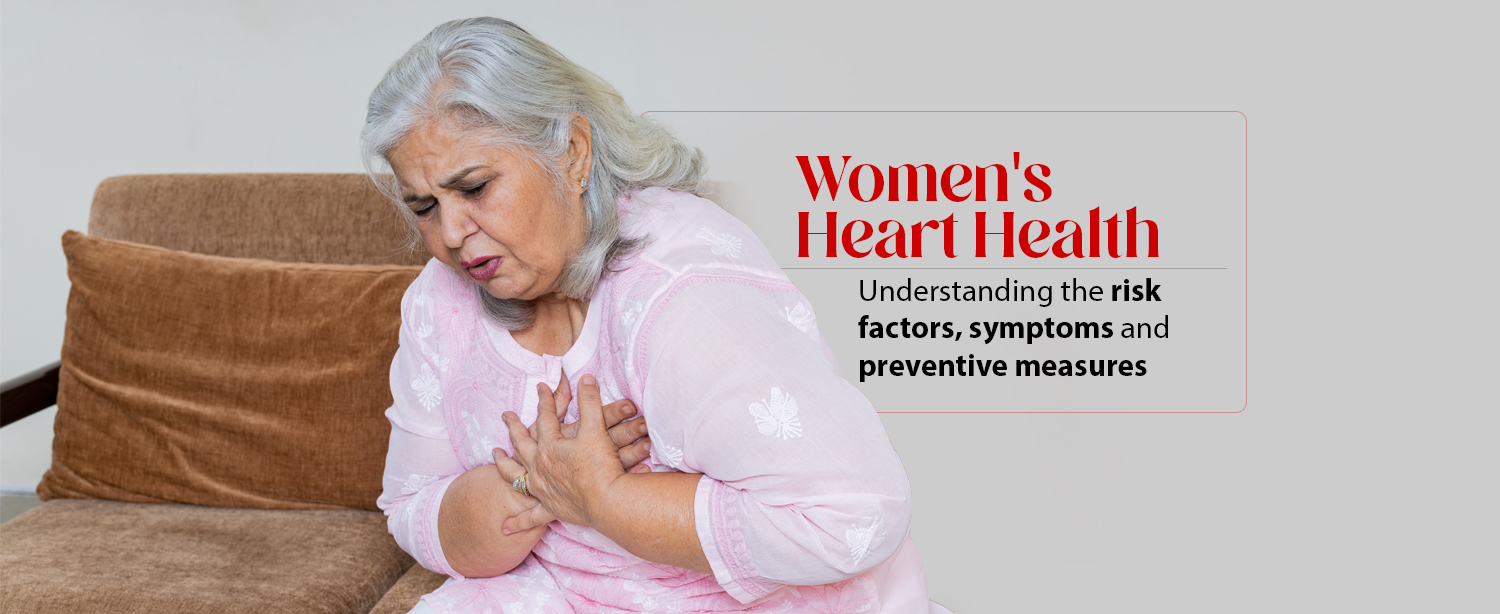Heart disease is not selective and affects both men and women, crossing all boundaries of age and ethnicity. However, many people still perceive it as a ‘man’s disease.’ This misconception can be dangerous. In India, heart disease claims approximately 25% of all lives, with a significant impact on women. According to the Global Burden of Disease Study, heart disease is the leading cause of death among Indian women, responsible for nearly 18% of female mortality. Alarmingly, the mortality rate surpasses that of breast cancer and other cancers combined. Journal of the American College of Cardiology studies reveal a prevalence of coronary artery disease in Indian women ranging from 3% to 13%, with a staggering 300% increase over the past two decades. These statistics highlight the urgent need to raise awareness about heart disease in women and address the unique risk factors that affect them.
Factors Contributing to Heart Disease in Women
Factors contributing to the heightened risk of heart disease in Indian women are multifaceted. High prevalence of risk factors like hypertension, high cholesterol, and diabetes is notable, with diabetes rates surpassing global averages. Unique challenges, including sedentary lifestyles, poor nutrition, and societal stressors, amplify these risks. Pregnancy-related conditions like gestational diabetes and hypertensive disorders elevate heart disease risk. Postmenopausal women face increased susceptibility, and early menopause adds an extra layer of risk. Lack of awareness, societal norms discouraging healthcare-seeking, and healthcare disparities, especially in rural areas, compound the challenges in addressing and preventing heart disease in women.
Top of Form
Understanding the Risk
Women face unique risks when it comes to heart disease, largely due to differences in hormones, body size, and even societal roles. For instance, women often experience a spike in heart disease risk after menopause due to a decrease in protective estrogen levels. Heart disease can affect women at any age, but the risk increases with age, particularly after menopause around the age of 55.
Identifying the Symptoms
Women’s heart disease symptoms may differ from men’s and can often be misunderstood or misdiagnosed.
They may experience pain or discomfort in their:
- Chest (most common)
- Left breast
- Back or between their shoulder blades
- Neck or throat
- Arms or Legs (one or both)
- Shoulders
Other symptoms include:
- Unusual fatigue
- Shortness of Breath
- Feeling dizzy or faint
- Feeling hot or flushed
- Nausea or Vomiting
Preventive measures for Heart disease in Women
About 80% of women aged 40 to 60 have one or more risk factors for coronary heart disease. However, many of these risks, such as high blood pressure, high cholesterol, and obesity, can be controlled with lifestyle changes and medication if necessary. Here are some specific things you can do to reduce your heart disease risk:
- Control your health numbers – cholesterol and blood pressure
- Maintain a healthy weight
- Exercise regularly
- Eat a heart healthy diet
- Quit smoking and alcohol
- Manage your blood sugar levels
- Be regular with heart health checkups
Cardiac Care at Kokilaben Dhirubhai Ambani Hospital
Women must be regular about their heart health checkups. Don’t overlook or dismiss symptoms that could indicate heart disease. If you experience any troubling symptoms, seek medical help immediately. Our Centre for Cardiac Sciences is equipped with state-of-the-art technology, top-notch infrastructure, and an expert team of cardiologists and cardiac surgeons. We offer a comprehensive program for the prevention, diagnosis, treatment, and rehabilitation of heart disease across all age groups, from infants to adults. Our team specializes in advanced treatments, including minimally-invasive surgeries, beating heart coronary artery bypass grafting, and awake cardiac surgery. Please find below website link for further details: https://www.kokilabenhospital.com/departments/centresofexcellence/centrefor_cardiacsciences.html


